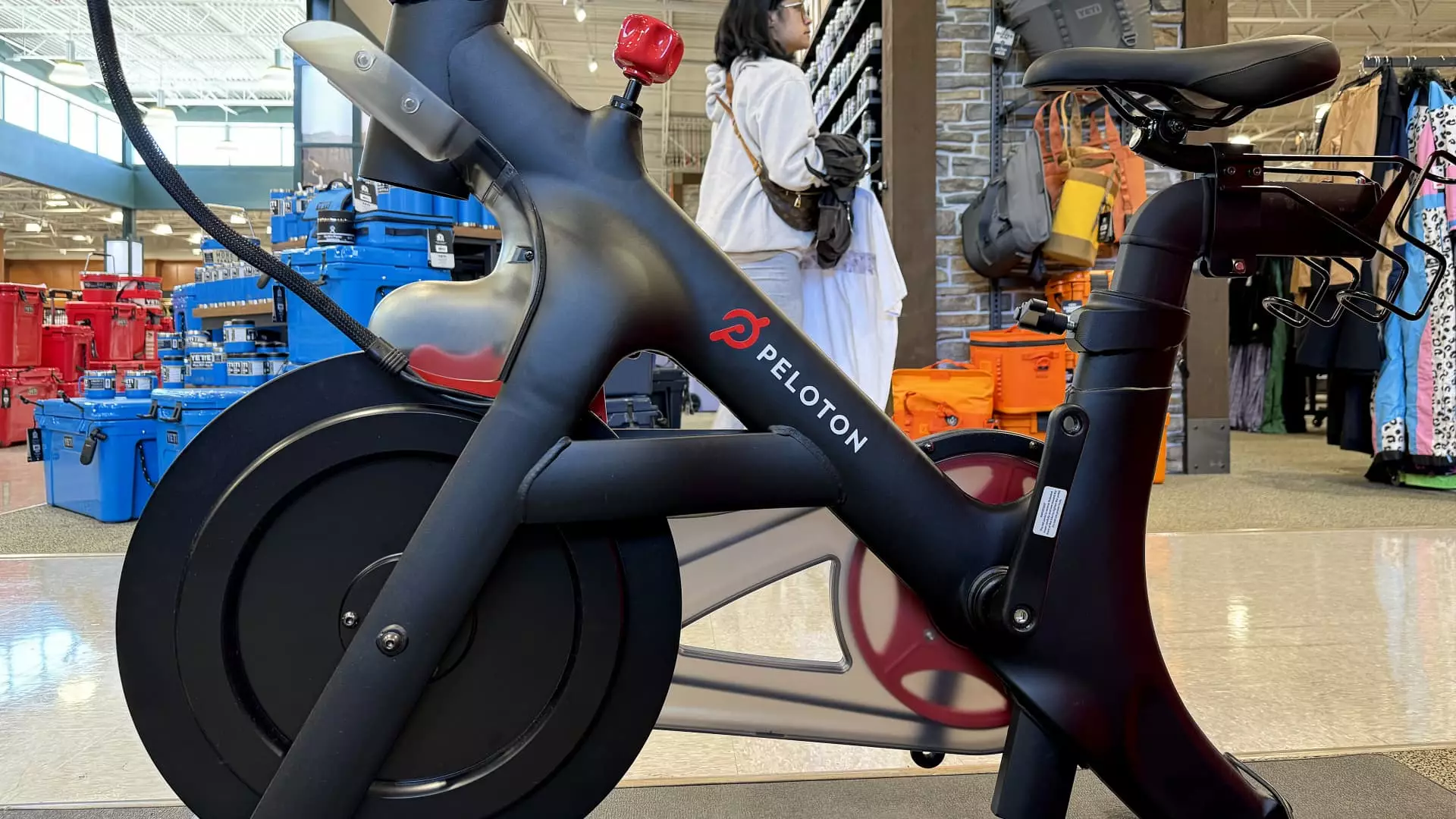In a daring stride towards revitalization, Peloton has embraced the resale revolution by launching Repowered—a dedicated marketplace designed for users to resell their pre-owned exercise equipment. This ambitious endeavor appears to be a strategic response to the looming issue of latent bikes and treadmills gathering dust in homes across the country. It’s an assertion that extends beyond mere commerce; it symbolizes a shift in Peloton’s business philosophy from solely focusing on new sales to leveraging the dynamic secondary market.
The truth is, the fitness industry is littered with forgotten exercise machines. A novel finding is that the resale market for such equipment is currently thriving, a direct representative of the economic climate where consumers prioritize value without compromising quality. Just this summer, Peloton noted a noteworthy uptick in customers opting for used bikes or treadmills through peer-to-peer platforms—evidence that the traditional health-and-fitness subscription model is under siege. By launching Repowered, Peloton is not only tapping into this growth area, but also laying out a framework for sustainable fitness solutions.
Harnessing AI for Pricing Power
At the heart of Repowered lies a unique and sophisticated generative AI tool intended to aid sellers in determining fair prices for their used equipment. While this may initially sound like another tech gimmick, it is a shrewd application of artificial intelligence to democratize pricing in the fitness resale market. Sellers can maintain control over their listings while benefiting from data-backed suggestions, redefining the user experience of selling used gear.
Imagine the uproar of many sellers who once traversed through chaotic online marketplaces like Facebook, where haggling and uncertainties were the norm. Repowered seeks to streamline this process, capitalizing on the existing wealth of data regarding the fitness evolution of its customer base, thus promising a more seamless transaction for both sellers and buyers alike.
However, one must not ignore the implications of this development. While Peloton’s 70% profit share from sales might seem generous, a critical eye views it through the lens of ongoing corporate strategy aimed at retention through secondary sales. Peloton does not simply sell bikes; it sells a lifestyle—and lifestyles shift as the tides do. The AI tool, while beneficial, may also serve as another layer of surveillance, noting patterns that Peloton utilizes to enhance its subscription models.
Pushing Beyond Competition
Repowered will undoubtedly face competition from established platforms, particularly Trade My Stuff, a startup focusing solely on used Peloton gear. Peloton’s immediate establishment of a competing marketplace gives it a significant edge, allowing it to harness existing users’ trust and engagement directly within its ecosystem. However, the crucial test lies in execution and the marketplace’s ability to provide true value for sellers and buyers alike.
This move can be interpreted as Peloton recognizing that long-term growth in the fitness sector is tied to creating a sustainable community rather than merely acquiring new subscribers. In the face of waning interest from casual fitness enthusiasts who find their Peloton equipment slowly converting into elaborate coat racks, Repowered could prove to be a saving grace that entices users back into regular engagement with the brand.
Rethinking Fitness and Value
Opportunities await those willing to embrace the changing landscape of fitness consumption. Repowered signifies a paradigm shift where previously owned equipment can offer the foundation for new possibilities—whether it’s fostering a renewed commitment to fitness or helping a community member gain access to affordable workout tools. In that light, Peloton isn’t just selling bikes; it’s selling the possibility of transformation, both personal and economic.
Over the next few months, as Peloton rolls out its marketplace city by city, the ramifications of this decision will become more apparent. It is the subsequent user engagement and financial outcomes that will determine if Repowered becomes a template for future innovation in the fitness retail space or remains just another digital footnote in the ever-evolving narrative of consumer investment. The stakes are high, and the path forward is fraught with challenges, but Peloton walks this line with an all-too-familiar blend of ambition and audacity.

